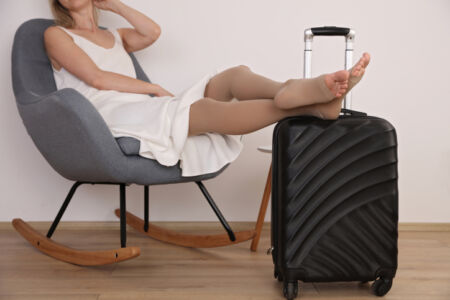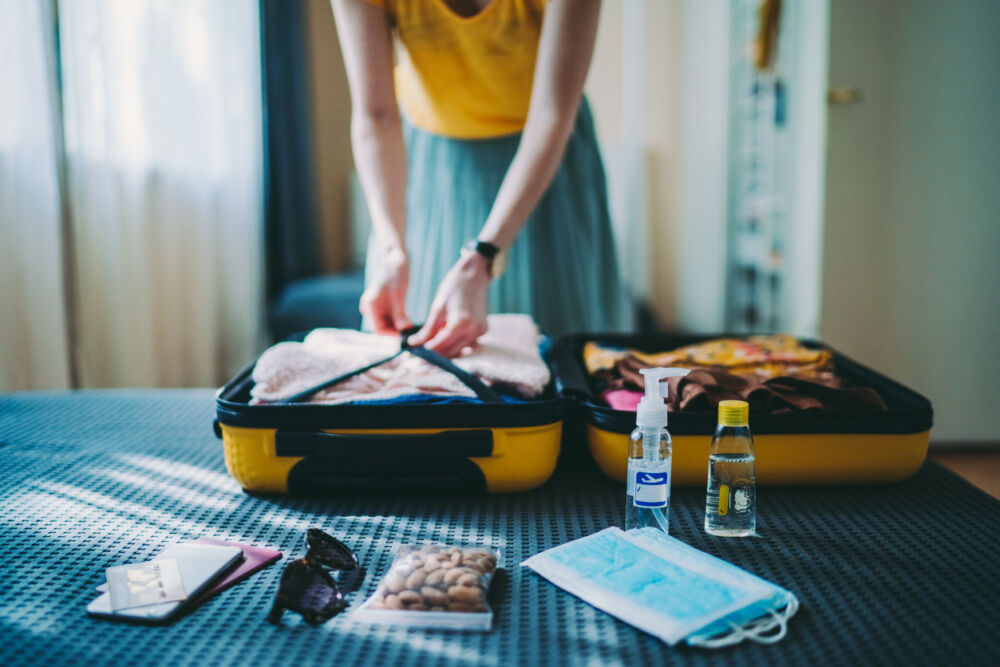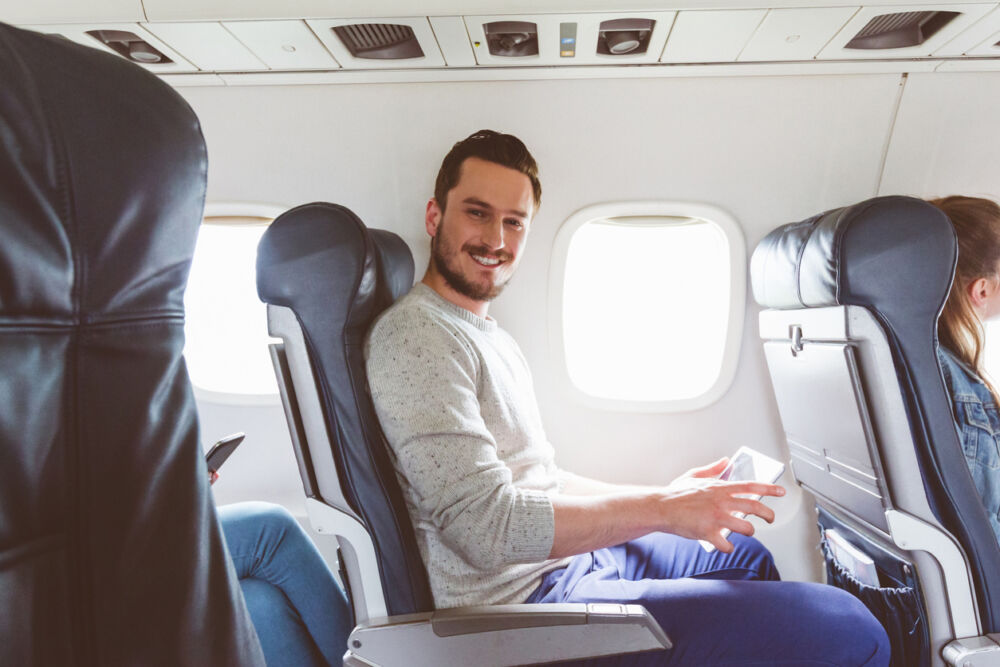If you suffer from the discomfort of varicose vein disease, leg pain can (literally!) cramp your style! Learn what you can do to enjoy a pain-free vacation.
According to Travel & Leisure Magazine, Americans are raring to travel in numbers far higher than before the Covid-19 pandemic. This year, 81 percent of American adults plan to hit the road or skies—with 42 percent planning "revenge travel" this summer. According to travel industry experts, revenge travel refers to a vast increase in travel and tourism, as people make up for vacations lost during the pandemic.
Despite concern over a potential recession and higher costs for airfare, fuel, and accommodations, vacation-starved travelers are willing to go anywhere to make up for experiences lost since the coronavirus disease hit our shores.
But for people with varicose veins, travel can be stressful
Unfortunately, the enthusiasm to hit the road is diminished
for people suffering from varicose veins. Bulging twisted varicose veins are often a source of embarrassment or pain. Varicose veins can hinder activity and cause sufferers to swelter in long pants.
Tips for traveling with varicose veins
While not every vacation is created equal, most travel involves sitting for long periods. The act of sitting makes it harder for your blood to circulate back up to your heart, causing blood to "pool" in the lower extremities. Ankles and feet swell, and legs become heavy, tired, and achy. Before you know it, painful varicose veins have ruined your well-earned travel plans.
But it doesn't have to be this way!
Here are easy tips to help you arrive at your destination with healthy, comfortable legs:
Flex your feet
While seated, lift your legs off the ground and roll your feet in a circulation motion. Reach down and pull your toes back one foot at a time, holding this position for 5 – 10 seconds each.
Activate your calf muscles
Calf muscles are a blood-pumping mechanism—squeezing blood out of the veins and towards the heart. Walking whenever possible, even if it's just up and down the aisle between the seats in a plane or train, is the best way to stimulate this pump action. If traveling by car, stop about every hour or so to get out and walk for at least five minutes.
Stay hydrated!
According to the Harvard School of Public Health, drinking enough water is vital to good health for various reasons, including delivering nutrients to cells, keeping joints lubricated, and maintaining proper organ function. For people prone to venous insufficiency (vein disease), the need for proper hydration is even greater because hydration thins the blood and promotes strong muscles that support veins in keeping blood flowing more freely. Dehydration can lead to blood clotting, increasing the possibility of deep vein thrombosis (DVT).
Wear comfortable, loose-fitting clothing
Tight clothing, especially around the waist, can restrict blood flow up to the heart, leading to blood collecting in the lower legs and ankles and causing swelling. Choose comfortable clothes from fabrics that keep you cool by allowing good airflow, such as 100 percent cotton.
Compression stockings are a must
You might wonder why tight-fitting clothing is unhealthy while traveling, but compression stockings (which are tight!) are healthy. Compression stockings provide "graduated compression," meaning that the sock is most snug around the ankle area. The tightness (compression) decreases as the stocking goes up the leg. This highly regulated, gentle squeeze helps the veins push your blood in the right direction toward your heart.
Speak to a CVR compression stocking specialist about the right level of compression for you.
It's not too late for vein-free travel
If you are among these 208 million Americans taking planes, trains, and automobiles anywhere and want to feel comfortable and confident (even while wearing shorts or dresses), don't wait!
Schedule an appointment with an experienced, highly qualified CVR vein expert TODAY! Call 240-965-3915 or schedule online HERE.
Treatment is covered by most major insurances, including Medicare and Medicaid.
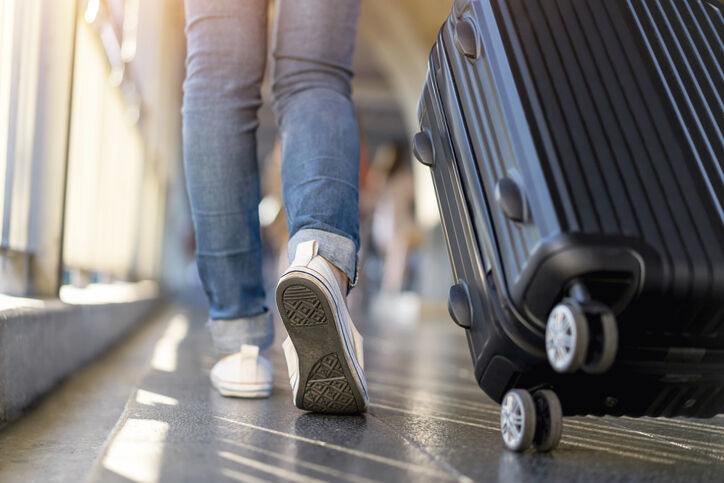
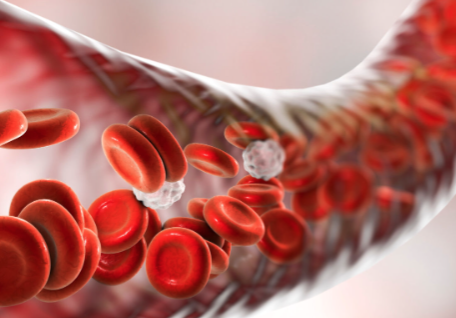 About Vein Disease
About Vein Disease
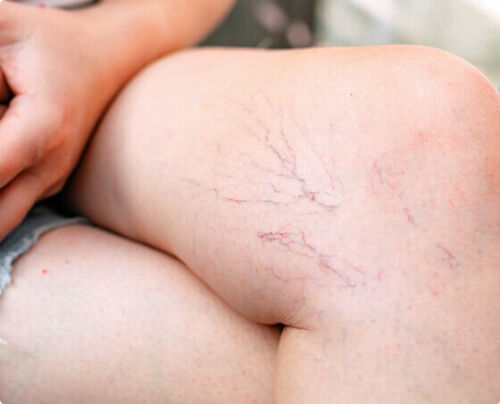 Spider Veins
Spider Veins
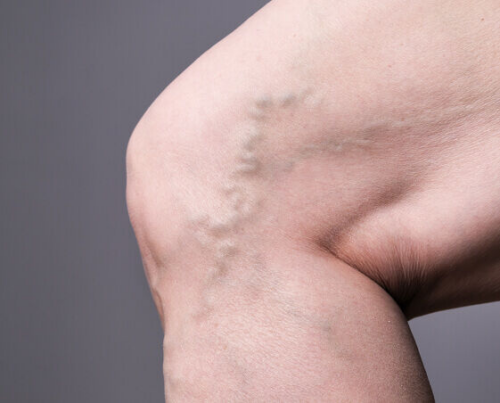 Varicose Veins
Varicose Veins
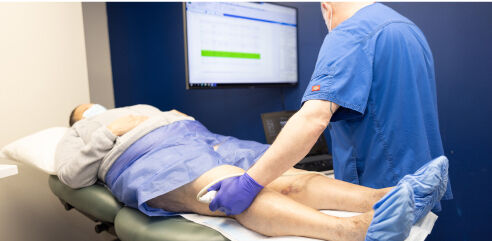 Vein Disease Treatments
Vein Disease Treatments
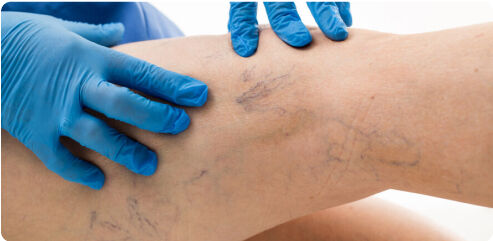 Treating Spider Veins
Treating Spider Veins
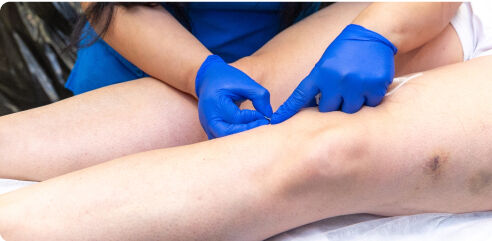 Treating Varicose Veins
Treating Varicose Veins
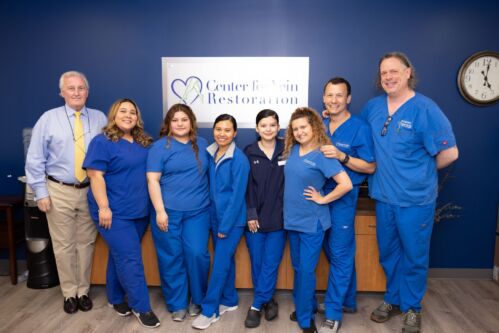 About Us
About Us
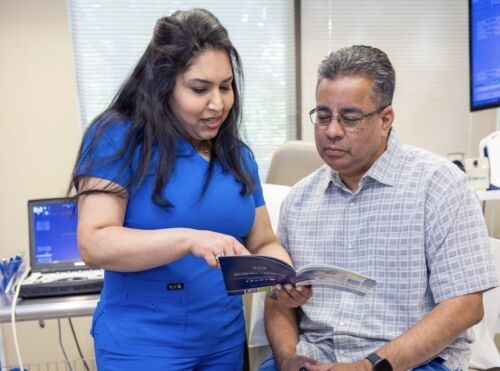 Patient Resources
Patient Resources
 Physician Resources
Physician Resources
